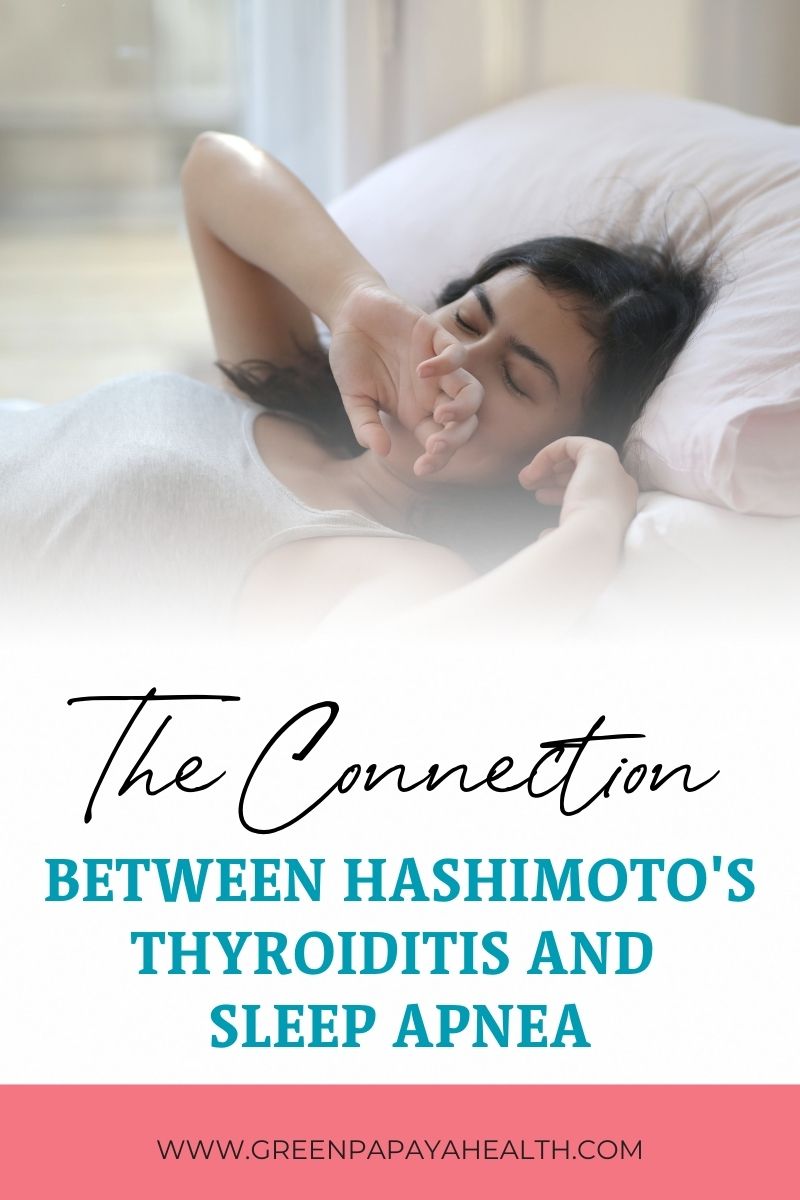Quality of sleep — especially poor quality sleep — affects the mind and body in several important ways. In addition to contributing to a reduced quality of life, inadequate sleep has been linked to memory impairments, daytime sleepiness, decreased alertness, and health issues such as diabetes, high blood pressure, obesity, and depression. Sleep issues have also been linked to hypothyroidism and Hashimoto’s disease: Primarily sleep disorders like restless legs syndrome (RLS), insomnia, and sleep apnea
Thyroid Disease and Poor Sleep Quality
Research shows that many individuals with Hashimoto’s thyroiditis and thyroid disease in general experience sleep difficulties that contribute to poor sleep quality, sleep deprivation, and daytime fatigue. One such study published in Risk Management and Healthcare Policy looked at the association between sleep quality and subclinical hypothyroidism (SHYPO) in greater detail, assessing the results of 2,224 individuals with SHYPO and 12,622 patients with normal thyroid function.
According to the results of the study, the patients with subclinical hypothyroidism scored higher on the Pittsburgh Sleep Quality Index (PSQI), a questionnaire that assesses an individual’s sleep quality, latency, duration, and daytime function. The individuals with subclinical hypothyroidism were more likely to experience shorter sleep duration, longer sleep latency, increased sleep disturbance, and poorer sleep quality overall when compared to those with normal thyroid function.
While this study didn’t assess patients with thyroid autoantibodies, other studies have found a link between Hashimoto’s thyroiditis and common sleep disorders such as sleep apnea.
Hashimoto’s and Sleep Apnea
According to Dr. Izabella Wentz, anywhere from 25 to 66 percent of men and women with autoimmune thyroid disease are affected by sleep apnea: A sleep disorder that results in pauses in breathing and a lack of oxygen while sleeping. Even after a full night’s rest, those with sleep apnea often wake feeling tired and unrefreshed. Other symptoms of sleep apnea include:
- Snoring
- Nasal speech
- Mouth breathing
- Daytime fatigue
- Attention issues
- Nightmares related to choking or breathing difficulties
- Scalloped tongue
While it’s not entirely clear whether having Hashimoto’s causes the sleep disorder or if it’s the other way around, research suggests that autoimmune thyroiditis could be both a cause and consequence of sleep apnea.
As one example of this research, an article published in the Journal of Clinical Sleep Medicine (JCSM) suggests that having obstructive sleep apnea (OSA) can increase one’s risk of developing Hashimoto’s disease and other autoimmune conditions — possibly because of the cellular damage caused during periods of nocturnal hypoxia in those with OSA. The hypoxia and sleep deprivation caused by OSA has been shown to impair the immune response and negatively impact the function of the immune system.
On the other hand, an abstract published in the European Journal of Medical Research suggests that patients with autoimmune thyroiditis may be more likely to develop OSA, even if their thyroid hormone levels are normal. This indicates that individuals with Hashimoto’s may have an increased risk of developing sleep apnea at some point in their lives. Having a goiter (an enlarged thyroid) may also increase the risk of developing OSA.
With that being said, it’s important to keep in mind that OSA is more common in those who have an enlarged tongue and tonsils, small jaw, and a deviated septum. Other risk factors include obesity, sinus issues, acid reflux, living in a high-altitude environment, and inadequate body positioning during sleep.
Sleep Better for Improved Thyroid Health
While having Hashimoto’s doesn’t necessarily mean you’ll develop OSA, it’s worth being tested for sleep apnea if you have high levels of thyroid peroxidase antibodies (TPO) or thyroglobulin antibodies (Tg). Additionally, you might consider being tested for sleep apnea if you experience symptoms such as snoring, restless sleep, and daytime fatigue. A polysomnography (or sleep study) is most commonly used to test for OSA, but at-home testing may be offered in some cases.
In addition to testing for OSA, practicing good sleep hygiene can help to improve your sleep quality, balance your hormones, and protect your thyroid. Try practicing relaxation techniques such as meditation and mindful breathing before heading to bed at night; and create a quiet, cool, and dark sleep environment.
There’s no need to struggle any longer: Contact me today and let’s work together to improve your sleep quality and overall health and wellness.
Ready to sleep better, feel healthier, and combat symptoms like brain fog, fatigue, and low libido? Schedule your 90-minute Vital You VIP Consult or apply for the Thyroid Reset Method™ to start getting your life back.
Sources:
- https://health.clevelandclinic.org/happens-body-dont-get-enough-sleep/
- https://www.ncbi.nlm.nih.gov/pmc/articles/PMC6927586/
- https://thyroidpharmacist.com/articles/hashimotos-sleep-apnea/
- Wentz, I. (2017). Hashimoto’s protocol (pp. 157-159). HarperOne.
- https://www.ncbi.nlm.nih.gov/pmc/articles/PMC6853408/
- https://pubmed.ncbi.nlm.nih.gov/15689305/
- https://pubmed.ncbi.nlm.nih.gov/9042657/
- https://www.mayoclinic.org/diseases-conditions/obstructive-sleep-apnea/diagnosis-treatment/drc-20352095





